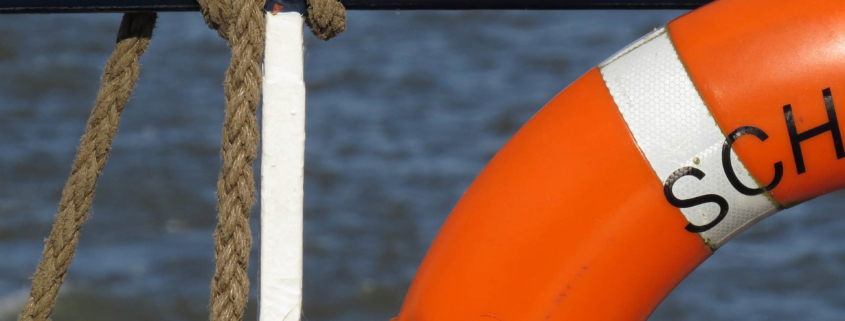Anxiety Interventions for Seafarers
When this whole situation with COVID-19 began, a joke circulating on social media was that “We live the questions on the 2150 history examinations”. It seems that this statement has some truth in it after all. The cancellation of all seafarer’s changes by 15 April (?), blockades and restrictions on ports and the need for mariners to continue carrying out their work effectively and safely, creates enormous psychological pressure.
Recently reading an article by a captain describing the whole situation and the pressure his crew and himself are feeling, I looked at the comments of other readers, including some sailors, as they claimed. Most were supportive, others’ comments were like “You make so much money so don’t complain”. Although I am not a seafarer these comments only frustration, disappointment and anger can create to any person who realizes that 80% of the commerce it is done through maritime. Nevertheless the purpose of this article I would like it to be more practical. During a number of communications that I had over the past few days with seafarers onboard for support, I realized that the levels of anxiety are quite high. So what I would like to address, what is stress, what is anxiety and provide some simple and practical suggestions about how to manage it, while onboard.
First, we need separate stress from anxiety. Stress is the term we use to describe the normal emotion that someone experiences when facing any threat, danger or psychological pressure. Stress is something constructive that allows us to stay safe, being cautious and evolve.
Anxiety, on the other hand, is the persistent feelings of high degree of anxiety, excessive discomfort and tension. A person has a problem with anxiety if his level is so high that it interferes with his daily life and does not allow him to do the things he wants or has to do. In short, stress is good and anxiety is bad. Stress is productive and anxiety is the problem that drains our energy and does not allow us to relax.
There are many symptoms associated with anxiety. The most common are:
- The person worries all the time
- Lack of trust and suspicion
- He always wants to discuss his concerns without the desire to try to find a solution.
- He feels his mind is running.
- Anger
- Irritability
- Impatience
- Lack of concentration
- Confusion
- Feelings of guilt
It can also present a variety of other “anxious” worries and behaviors that are usually easily perceived when you speak or observe the person.
But what can we do when we or another colleague of ours finds that we or another colleague is under intense stress?
There are many techniques that can help us reduce anxiety, however, we cannot and should not implement some at least without guidance and supervision. For example, I see several guides that mentioning that breathing exercises can calm us down. That is right, but if we do not do it right, it can increase our anxiety and cause even panic attacks. So if we have not done this procedure before, it is best to avoid it!
So what can we do? The secret in this case is to implement simple solutions that can be highly effective.
- Talk to your family, friends onboard and onshore. English translation. Not about the virus or the situation, but about other issues. Try to confirm to yourself and others that life goes on, even under these extraordinary situations. That does not mean you are going to pretend the current situation does not exist, but do not just talk about it!
- Do things that can distract you and help you take your mind of. Listen to music, watch a movie, read or anything that might make you enjoy your free time.
- Even half an hour of exercise can relax you and reduce stress levels.
- Evaluate what you can control and what is not. Most of the time what makes us nervous is “the need to control our environment”. But that is not always possible and the current situation confirms exactly that. Yes it is a difficult situation but for the most part is beyond our control, so you better focus on what you can influence and change.
One important thing to remember when someone experiences intense anxiety you should not approach him when they are in that state! Someone who is very anxious or panicking is in a battle mode. He feels threatened by something, unable to comprehend what, so he perceives as a threat everyone around.
As I mentioned at the beginning of this article, these are extraordinary situations and probably many things will be different in our daily lives even after the end of the pandemic. That is the reason why there is no protocol about what we should and should not do. All we can do is combine our knowledge of different situations, evaluate the outcome and when the need arises to adapt. We should have no doubt that in the end we will succeed, however difficult this may seem now.
To surviving is a need, thriving is a necessity.
See the Greek version of this article at www.isalos.net





